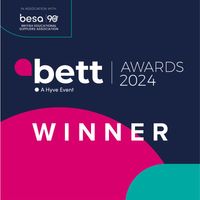Lexicographers at major international dictionaries are equally susceptible to this very human urge, and their contribution to the great collective ‘summing up’ is the selection of a single word that encapsulates and reflects ‘the mood and preoccupations’ of the year. This year, for those at the Oxford English Dictionary, that word is ‘rizz’.
Now, being shamed for your unfamiliarity with a word used frequently by young people is not a new experience for most teachers, but I'll save you the red face on this occasion. ‘Rizz’, a shortened form of the noun ‘charisma’, is defined as ‘style, charm or attractiveness, or one’s ability to attract a romantic or sexual partner’ and it reached its peak of popularity in June of this year when actor Tom Holland described himself, in an interview with Buzzfeed, as having “limited rizz.”
But how do lexicographers decide that a word like ‘rizz’ might signify something important about our national discourse? The selection process differs slightly depending on the dictionary, but it usually involves the use of software to identify emerging trends from an enormous corpus of language use. A shortlist is then assembled from a selection of words that have shown a statistically relevant surge, before a winner is eventually chosen that, it is hoped, will represent something about what the Germans call the ‘zeitgeist’.
So, if ‘rizz’ is this year’s mirror into the collective consciousness, what is it reflecting about the way we have been thinking and feeling? The answer might be less clear than in previous years where words like ‘austerity’ (Cambridge, 2015), ‘fake news’ (Collins, 2017) or ‘pandemic’ (Mirriam-Webster, 2020) very directly labelled phenomena that were central to the news agenda for the year, but a slang term like ‘rizz’ is also informative.
‘Rizz’ teaches us something about how language can be shaped within certain communities before being adopted at a wider scale. It sets forth the way in which younger generations increasingly create online spaces in which unique discourse conventions become a marker of in-group identity and a way of owning the language they use and the identity they convey.
The surge in usage of words like ‘rizz’, not to mention other 2023 contenders like ‘beige flag’, ‘de-influencing’ and ‘parasocial’, demonstrates the way in which social media increasingly quickens the pace of language change and shapes the trends that will eventually become part of day-to-day vernacular. It’s not just that younger generations drive linguistic change, or that internet technologies do, but rather that the combination of both is resulting in a lexicon that is expanding in ever quicker and more efficient ways.
If we cast our net a little wider than the OED, the nominations for 2023 are also revealing of the collective anxieties bubbling to the surface in the past 12 months. Cambridge Dictionary selected ‘hallucinate’, a word that labels generative AI’s ability to produce false information and present it as fact, whilst Mirriam Webster hit upon our increasing inability to recognise genuine human creativity from AI’s algorithmically generated counterparts in its selection of the word ‘authenticity’. Collins were even more direct; their word of the year is simply ‘AI’.
On one level, this merely encapsulates the way in which our lexicon can receive a flurry of new words to label aspects of significant technological or scientific developments (think too of the words Covid brought into public consciousness; ‘key-worker’, ‘social-distancing’, ‘super-spreader’) but on another level it reveals something about the human instinct to search for new words or redefine old ones as we document the concerns weighing on our collective consciousness.
One thing is certain; language is always changing, evolving and adapting to the needs of its users. If I were to try to explain to someone that I was currently using my smartphone to connect to the internet in order to write a blog, and I was using a language that had remained static since 1970, I simply wouldn’t have the words I needed to communicate my meaning. The same will be true 10 years from now; as the needs of language users continue to evolve, so will the language.
At Bedrock, we recognise this need for constant adaptation and evolution. Although it's hard to imagine ‘rizz’ finding its way into our academic vocabulary curriculum in the near future, what we can promise is a literacy offering that reflects the shifting trends and disciplinary patterns of language in academic contexts. A curriculum that remains static in a world that evolves as quickly as ours will soon be left behind.






